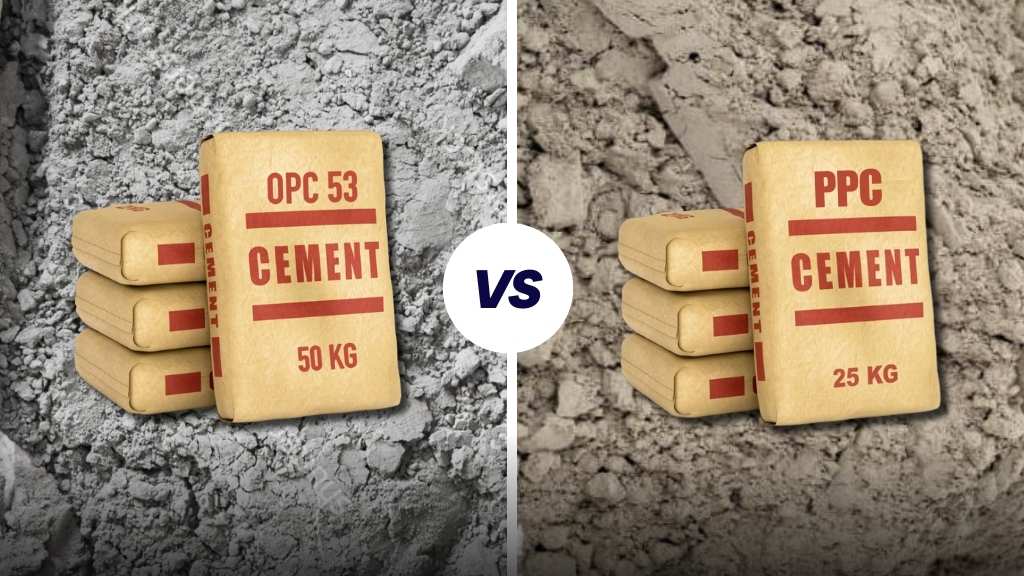Property Geek
We provide the actual and accurate information with unbiased user driven reviews to our viewers, to help them see the best and find the best!
View posts
PPC Cement: Pozzolana is a natural or synthetic substance that includes reactive silica. Cement made from a combination of pozzolanic minerals is known as Portland Pozzolana Cement. Gypsum, pozzolanic ingredients, and OPC clinker are all included in this cement in varying amounts. Fly ash, volcanic ash, calcined clay, and silica fumes are some examples of pozzolanic materials. These ingredients are added between 15% and 35% of the weight of the cement.
OPC Cement, also known as Ordinary Portland Cement (OPC), is made by finely powdering a combination of limestone and other raw materials including gypsum, argillaceous rock, and calcareous rock. Three different grades of this cement are offered, including OPC 33, OPC 43, and OPC 53. The most widely used cement in the world is OPC. This kind of cement is suitable if the building is carried out quickly. However, the production of OPC has greatly decreased as blended cements like PPC provide benefits including lower energy use and environmental damage.
This is a quick summary of the difference between OPC and PPC. Let’s further understand the in-depth difference between OPC and PPC cement.
Their primary distinctions in traits and applications are:
Below is a table showing the difference between OPC and PPC cement.
|
OPC |
PPC |
|
|
|
2. It is not suitable for mass concreting because of its high heat of hydration. |
2. Due to the slower hydration rate than OPC, there is less heat generated during hydration. It is therefore appropriate for bulk concreting. |
|
3. Sulphates, alkalies, chlorides, etc. are more prevalent and less resistant than PPC. |
3. The concrete is durable because it contains little in the way of sulphate alkalis, chlorides, magnesia, and free lime. |
|
4. Inclement weather is unfavourable for OPC. |
4. Increases ability to withstand harsh weather. |
|
5. OPC cement is offered in three grades, including 33 Grade, 43 Grade, and 53 Grade. |
5. PPC is available in any specified grade. |
|
6. It is a little more expensive than PPC. |
6. More affordable than OPC. |
The Bureau of Indian Standards (BIS) has divided OPC into three distinct grades: 33 grade, 43 grade, and 53 grade. Due to its low compressive strength, 33 grade is normally not used when a high grade of concrete, such as M-20 and above, is required. 43 grade is widely employed in a number of contexts.
This grade is especially popular in the construction industry. The 53 grade’s high strength may satisfy the need for sturdy concrete. The OPC 33, OPC 43, and OPC 53 grades of cement have the same chemical composition, despite the fact that the higher grade cement is substantially stronger and more durable. However, PPC currently offers compressive strength that is similar to 33-grade OPC, according to B
OPC and PPC cement are both often used in buildings. Nowadays, PPC is employed in place of OPC. PPC is an adaptation of OPC that increases the strength of the concrete by adding a combination of pozzolanic materials.
PPC reduces the quantity of OPC used to make concrete as well. It’s interesting because it’s a green substance that promotes sustainable growth. In light of these elements, PPC edges over OPC by a small margin. However, it is challenging to draw a firm judgment.